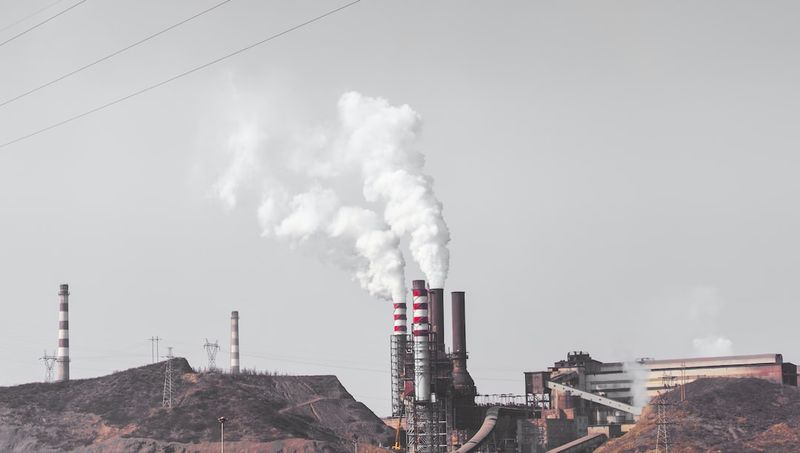Fires in Quebec Cause Severe Air Pollution and Health Concerns
Smoke Blankets Quebec, Causing Evacuations and Air Quality Warnings
As more than 110 wildfires continue to rage in northern Quebec, dense smoke has engulfed many parts of the province, leading to evacuations and smog warnings. Environment Canada issued smog warnings for various regions, including Montreal, Quebec, Laval, Longueuil, and Trois-Rivières. The air quality health index in Montreal and Ottawa was listed as “very high risk,” with an index of 10 or more. The poor air quality resulting from the wildfires is expected to persist until Monday morning.
Health Risks and Precautions
Environment Canada has cautioned that individuals with lung or heart disease, elderly people, children, pregnant women, and those who work outdoors are at the highest risk due to the current air pollution. The agency advises individuals with symptoms such as shortness of breath, wheezing, severe coughing, dizziness, or chest pain to seek medical attention and stay indoors. It also recommends that everyone minimize outdoor activities and take necessary precautions to protect their health.
Impact on Daily Life and Cancellations
The smoky conditions and health risks have affected daily life in Montreal. Various activities and events, including a triathlon, an ironman race, soccer and baseball matches, have been cancelled to ensure the safety and well-being of residents. The local government has also closed outdoor sports facilities, pools, and wading pools, while outdoor cultural activities have been cancelled until June 26. The smell of smoke pervades the air in Montreal, prompting officials to urge people to stay indoors.
Evacuations and Relocation
The residents of Chibougamau, a northern municipality in Quebec, are on high alert as two wildfires continue to grow and threaten their homes. Officials have warned the approximately 7,500 residents that they may need to evacuate for the second time this month. In the past days, thousands of people, including residents of Lebel-sur-Quevillon, sectors of Senneterre and Val-d’Or, and several smaller villages, have already been asked to leave their homes due to heavy smoke. While conditions are challenging, officials hope that calmer winds will improve the situation.
Other communities, such as the Cree Nation of Mistissini, have also faced the need to relocate vulnerable residents as fires pose risks to their access road and threaten the community. The heavy smoke has hindered the capacity of water bombers to fight the fires, as reduced visibility limits their flying capabilities. However, officials remain hopeful that forecasted rainfall in the coming days will assist firefighters and allow the planes to operate at full capacity.
Editorial: Urgent Action Needed to Address Fires and Air Pollution
The recent wildfires and resulting smog in Quebec highlight the urgent need for action to address the devastating impacts of climate change and to better manage our natural resources. As climate change continues, the frequency and intensity of wildfires are expected to increase, posing serious risks to the environment, public health, and communities.
Addressing the Root Causes
It is essential to recognize that wildfires are not solely natural disasters but are often exacerbated by human activities and inadequate forest management practices. To mitigate the frequency and severity of wildfires, comprehensive strategies are needed to combat climate change, protect ecosystems, and promote sustainable land use. This includes reducing greenhouse gas emissions, investing in renewable energy sources, and adopting sustainable forestry practices.
Enhancing Emergency Response and Preparedness
Efforts should also be focused on strengthening emergency response and preparedness measures. This includes investing in firefighting resources, such as equipment and trained personnel, as well as improving coordination among different levels of government and Indigenous communities. Adequate funding should be allocated to support evacuation efforts, provide assistance to affected communities, and ensure the safety and well-being of residents.
Promoting Public Awareness and Education
Public awareness and education are crucial in addressing the risks associated with wildfires and air pollution. Governments should invest in educational campaigns to inform citizens about the dangers of wildfires and the steps they can take to protect themselves and their communities. This includes promoting the importance of early detection, reporting, and adherence to evacuation orders. Engaging Indigenous communities in these efforts is crucial, as they possess traditional knowledge and expertise in managing fire-prone landscapes.
Advice for Public Health and Personal Safety
Given the current smog and air quality concerns, it is important for individuals to prioritize their health and take necessary precautions. Here are some recommendations:
Stay Indoors and Minimize Outdoor Activities
It is advisable to limit outdoor activities, especially for individuals at higher risk, such as those with pre-existing respiratory or cardiovascular conditions, the elderly, children, pregnant women, and outdoor workers. Staying indoors, in a well-ventilated and air-conditioned environment, can help reduce exposure to smoky air.
Avoid Exertion and Physical Strain
Engaging in vigorous physical activities can increase the inhalation of smoky air, which may exacerbate symptoms and health risks. It is advisable to avoid strenuous exercises and tasks that require significant physical effort until air quality improves.
Monitor Local Air Quality Reports
Stay informed about air quality updates and follow recommendations provided by public health agencies and local authorities. Regularly check air quality indexes and advisories to make informed decisions about outdoor activities and potential health risks.
Seek Medical Advice if Experiencing Symptoms
If you or someone in your care experiences symptoms such as shortness of breath, wheezing, severe coughing, dizziness, or chest pain, seek immediate medical attention. Follow the guidance of healthcare professionals and follow any prescribed treatments or medications.
Support Relief Efforts
Consider supporting relief efforts for affected communities by donating to reputable organizations involved in disaster relief and recovery. These contributions can help provide much-needed assistance to those impacted by the wildfires and support the restoration of affected areas.
Remember, protecting our environment and combating climate change requires collective action. While individuals can take steps to protect their health and minimize their impact, governments, communities, and industries must work together to address the underlying causes and reduce the risks posed by wildfires and air pollution.

<< photo by JuniperPhoton >>
The image is for illustrative purposes only and does not depict the actual situation.
You might want to read !
- Mont-Tremblant Ironman Cancelled Due to Severe Weather Conditions: Impact on Athletes and Tourism
- Sudbury’s Air Quality Index: A Troubling Trend Towards Unhealthy Levels
- North Bay’s Air Quality Crisis: How to Assess the Peril
- “Southern Ontario under Tornado Warning as Severe Weather Looms Over Oxford-Brant and London-Middlesex”
- “Tornado Warning: Possible twister spotted near Woodstock, Ontario”
- “We can find alternate solutions”: Premier responds to concerns over DynaLife privatization




